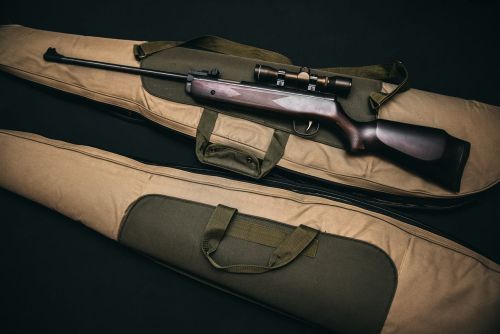Menu



Violent crime is a serious problem in Philadelphia and across the country. Therefore, it is no surprise that the authorities are cracking down on federal firearms offenses and that sentencing judges in the federal courts are imposing significant penalties. Those penalties can include jail time, substantial fines, community service, and probation. In addition, a federal firearms conviction can result in collateral consequences that could affect for years after any court-imposed sentence ends.
If you are currently facing a federal firearms charge or conviction in Philadelphia, you need a lawyer on your side who regularly defends these matters at trial and who has experienced working with federal prosecutors. Attorney Lauren Wimmer of Wimmer Criminal Defense Law knows what it takes to come up with a winning defense and trial strategy. Call us today to schedule a free case evaluation.
When it comes to firearm charges, the question of federal law versus state law often arises. Federal law applies when there is an issue – or question – in the case that involves a federal statute or other law. If the crime takes place across state lines, such as in the case of multi-state drug trafficking crime sprees, federal law will likely apply in the case, and the case will proceed in the federal court system.
A person may be deemed in either actual or constructive possession of a firearm. Actual possession of a firearm means that the firearm was actually found on the accused’s person. For example, the police may have recovered the firearm from the accused’s pocket. Constructive possession of a firearm, on the other hand, means that a person had control over a firearm without being in actual physical possession of that firearm.
If you are charged with possessing a firearm, you will likely be facing some severe penalties. This is especially true if you have a prior criminal conviction on your record. Someone who has previously been convicted of a felony at the federal level, for example, can be sentenced to a maximum of ten years of incarceration if he or she is determined to be in possession of a firearm. The same is true of a previously convicted drug user who has a firearm in his or her possession.
If the offender is caught possessing a firearm after he or she has already been convicted of three violent felonies – or prior serious offenses which involve drug trafficking – the offender can be sentenced to a minimum of 15 years’ incarceration. Violent felonies, or crimes of violence, include some crimes of assault, domestic violence, and various degrees of homicide.
Whenever someone uses or carries a firearm during a drug trafficking crime or violent crime, additional criminal charges and sentencing enhancements can result. If an offender robs two federally insured banks, commercial businesses, or financial institutions that directly impact interstate commerce – and with the use of a firearm – he or she could be sentenced to 25 years of incarceration for the firearm offense. In addition, he or she could be sentenced and incur additional criminal penalties for the robbery charges. If, on the other hand, the offender robs three of these financial institutions, then he or she could receive a total of 35 years in jail, along with the penalties associated with the robbery conviction.
Using an assault weapon or a shotgun can result in ten years of incarceration being added to a violent crime conviction. If the offender uses a silencer, automatic weapon, or destructive device during the commission of a crime, the criminal sentence could be enhanced by an additional 30 years of incarceration.
As with adult firearm offenses, juvenile firearm offenses are also treated harshly. Juveniles are prohibited from possessing a handgun or ammunition for a handgun. Others are similarly precluded from transferring a handgun or handgun ammunition to a juvenile. A juvenile who is ultimately found guilty of a first-time handgun charge may receive probation.
Adults who provide a handgun or handgun ammunition to a juvenile can also be charged with a misdemeanor. However, if the adult transferred the weapon or the ammunition to the juvenile while knowing that the juvenile planned to use the firearm to commit a violent crime, then the adult could be charged with a felony and sentenced to a maximum of ten years’ incarceration.
If you have been charged with a federal crime involving a firearm, there are several legal defenses which may be applicable to your criminal case. Those defenses include:
Federal firearm charges carry significant penalties upon conviction. Not only can you be sentenced to jail time and incur other significant penalties, but you will also likely suffer personal consequences resulting from a federal firearms conviction. Your personal freedom will be compromised and you will likely lose your job. It can also be extremely difficult to find new employment with a federal gun offense on your record.
If you find yourself facing federal firearm charges, Philadelphia criminal defense lawyer Lauren Wimmer of Wimmer Criminal Defense Law can help you by fighting your charges while preserving all of your legal rights. To schedule your free consultation and case evaluation with an experienced Philadelphia firearm charge defense lawyer, please call today at 215-712-1212, or contact us online.
© 2024 Wimmer Criminal Defense, PC|Legal Disclaimer|Privacy Policy